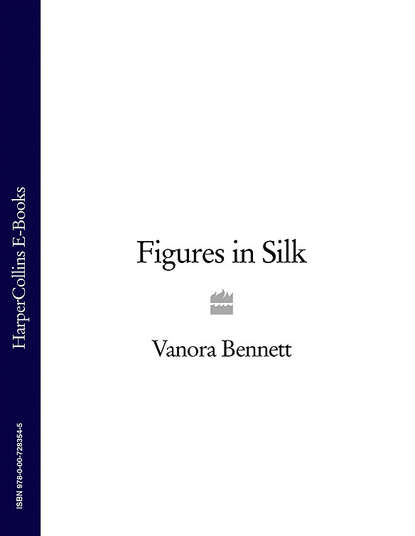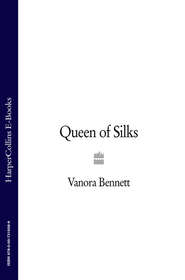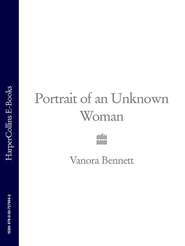По всем вопросам обращайтесь на: info@litportal.ru
(©) 2003-2024.
✖
Figures in Silk
Настройки чтения
Размер шрифта
Высота строк
Поля
When she did dare raise her eyes, there were no embarrassing transports of joy on the little heart-shaped face in front of her. Isabel was looking up at her, very seriously, with her eyes slightly narrowed. It was the look Alice Claver put on her own face when she was considering an offer. With a shock of what she thought might be gratitude, Alice Claver realised Isabel must have learned that look from her.
She was almost surprised to see Isabel’s lips form the words: ‘I would like to stay.’
Alice Claver felt the wide grin she reserved for the Prattes and her other old friends break out on her face; she was suddenly strangely short of breath. I’ve got used to having her around, she told herself. That must be why. Somewhere in the confused back-clap that followed, the bustle of sitting down and pouring out two cups and starting to describe tomorrow’s work in something much closer to an everyday voice, then the move to the silk storeroom, Alice Claver felt the beginning of the same comfort she’d drawn from making friends, back in those first days at Catte Street, with Anne and William and the others; the smoothing out of differences, mistakes, flaws in the weave; the tying of bonds that might be strong enough to take the place of family.
Isabel could see Alice Claver was reassured to be in her storeroom. The diagonals of pink and gold light from the windows made her wares shimmer. They transformed her too. She lost her gruffness. Her eyes sparkled. There was love in her voice.
She set out a brisk timetable for the rest of Isabel’s voluntary apprenticeship. Two years to learn to sew each of the delicate small items that made manufactured silkwork London’s glory – from transparent cauls for the hair, decorated with jewels and gold thread, to the laces and points needed to fit together the elaborate items of clothing made by the vestment-makers, to tasselled and embroidered and jewelled purses pulled tight by drawstrings and tied to the belt by purse strings, to the heavy strips of glittering embroidery, to orphreys for edging ecclesiastical robes, to ribbons, woven on a miniature narrow-loom, a box so small you could clamp it to the edge of a table – the only piece of equipment more complicated than a needle in English silkwork.
During those two years Isabel would also accompany Alice Claver to meetings with foreign silk merchants and aristocratic clients; she would go to the Royal Wardrobe when Alice Claver had a contract to supply royalty, and learn how to tender for work and the formalities for delivering it. She would learn some of the faces and the names of the most powerful people in the business. Once the two years were up, she’d start going with Alice Claver to the trade fairs at Bruges and Antwerp. There, she would begin to see how to make the large-scale wholesale deals considered the pinnacle of achievement for a silk merchant – choosing and buying the trade’s greatest luxury, the whole silk cloths woven in the East and in Italy on full- size broadlooms, a skill not known in England. She’d learn how to import these cloths, each worth a substantial portion of a prince’s annual rents, to make garments for the richest people in England.
‘Why do we have to go abroad to buy whole silk cloths?’ Isabel ventured, feeling ignorant. ‘Or pay the margins the Italians here take? Can’t they be made in London?’
Alice Claver darted a bright, intense look at her, as if Isabel had intuited something extraordinary.
‘We don’t have the knowledge,’ she answered, after a pause.
‘Why?’ Isabel asked. ‘Surely it’s just the same as weaving wool?’
She felt as she said it that she must be saying something stupid. But her question seemed to have opened the way to Alice Claver’s heart.
Alice Claver’s eyes were full of enthusiasm, but she shook her head. ‘Far more complicated,’ she said decisively. ‘Finer, for one thing. Venetian export damasks have 9,600 silk threads in a single arm’s-width, a braccio. Even cloth of gold and plain velvets have 7,200 threads. And to get the patterns in the cloth, you need far more than one line of warp threads and one line of wefts; you might have half a dozen of each in a single cloth, each needing something different done to it. Considering what silk costs, no one could afford to just start experimenting. You’d need to know the secret before you even thought of trying to build, or thread up, a full-size loom – as long as two men and as wide as another – with good-quality silk. It would bankrupt a king to start working it out from scratch.
‘And it’s not just the number of threads. It’s knowing how to mix the different imports. Look,’ she went on. It was clear she’d thought about this many times. She started pulling out bolts of stuff to show Isabel how threads from different lands could be mixed together in the same piece of silk cloth; how a single bolt could be made of Spanish silk warp and Persian silk weft for a satin; or a Syrian silk warp and Greek silk weft for a damask; how two kinds of silk from different regions could be put together and thrown to form a single thread. She said some silks, such as orsogli, were especially suitable for warp threads; that all types of cloth could use weft threads of Persian leggibenti, catangi or talani; that velvet-like satins needed weft threads of the calabrese, the catanzana, and the crespolina productions; that the siciliana was right for heavy satins and that medium-thick silk threads, for slightly lighter cloths, were called di donna and granegli. Isabel learned that silk from Almeria was used for taffetas and satins, and silk from Abruzzi for zetani, fabrics made with a satin weave and sometimes with a velvety pile.
‘These are just the odds and ends of knowledge I’ve picked up over the years from buying silk,’ Alice Claver said modestly. ‘But to weave a silk cloth that would be distinctive, and saleable, you’d need to have mastered all this and more. Much more.’
Isabel surprised a yearning look on her mistress’s face.
‘To have a hope of succeeding, you’d need a three-way deal on a scale no one has ever done in London,’ Alice Claver went on.
She’d thought about it a lot, Isabel could see. Alice Claver couldn’t shake off her longing to do this vast deal, however impossible she was making it sound. ‘First, you’d need an Italian master willing to share his secrets with you,’ she said briskly, lifting up one finger. ‘And that’s a rare beast, let me tell you. It would be easier to catch a unicorn.’
She lifted a second finger. ‘Next, he’d need to get permission from his city government in Italy to import a full workshop of craftsmen here to set up. And the Venetian silk boards hate letting good people go. So you’d have to factor in years of bribing bureaucrats. Nothing happens fast in Italy.’
Isabel nodded, reluctantly. It did sound intimidating.
‘But the biggest problem would be the third one,’ Alice said, looking gloomily at the third finger she was raising to wave in Isabel’s face. ‘Money. Even if you had the other parts of the deal in place, who would pay? You’d need a rich backer at the London end. A very rich backer. Someone willing to lose vast amounts of money every year for decades while an entire industry was set up. You might not see a return for twenty years. But there’d be wages and houses and materials and costs to cover all the while. Silk doesn’t come cheap. It would be beyond the means of anyone I can think of, except the King, unless by some miracle the entire guild of mercers joined forces to back it instead.’
The silkwoman laughed mirthlessly. ‘They certainly never would. They’d be too scared. The Lombards here make half their money out of importing silk cloths to sell to us; and the rest from banking for London merchants. They wouldn’t take kindly to Londoners trying to set up a business that competed with theirs. And since our mercers do their banking with the London Italians, they couldn’t cross them without having their trade accounts cut off,’ she snapped her fingers, ‘just like that. No one would run that risk. You might get rich in twenty years by weaving silk cloths, but how would you buy your ready-made silks at Antwerp and Bruges until then, without those accounts?’
She shrugged. She looked down at the silks she’d pulled out, tutted, and began resignedly to fold them away, as if she were packing away the impossible dream at the same time.
Then she stopped again; she couldn’t quite bear to drop the subject. She gave Isabel a hard look. ‘And while we’re talking about impossible, there’s this too,’ she said. ‘Gossip. Even if you did manage to find a way to get going, you’d have to spend all those years of setting up keeping your plans a complete secret from every Italian merchant in London. But can you imagine starting something so big, which would employ so many people, without the markets being full of it?’ She grunted. ‘There’d always be talk. It’s all impossible.’
She sighed. Looked at the greens and golds still spread around her, blazing in the sunset; the colours of dreams.
Isabel said stubbornly: ‘The money’s the real thing, though. Wouldn’t the King pay?’
Alice Claver snorted. ‘Him?’ she answered succinctly. ‘Broke. Too many wars.’
Isabel sighed. Alice was right, she realised; the King was always borrowing money from the City. ‘Someone will work out how, sooner or later, though…’ she said wistfully.
Her mistress’s face brightened. ‘Yes, and make a fortune,’ she agreed robustly. ‘At least I hope so. London silkwomen are the best in Christendom. It’s against nature for us to let the Italians have the best of the market. There must be more for us in the future than fiddling around with tassels and braids and bits of ribbon!’
She guffawed as if she and Isabel were old friends. Astonished to have been given a glimpse of Alice Claver’s heart’s desire, Isabel hesitantly joined in.
6 (#u34cf85bc-f9b0-57a1-bac7-6bd0ab41d828)
‘So is it true?’ Anne Pratte asked, eyes coquettishly down on her flying fingers. ‘What they’re saying about your sister?’
Isabel had her fingers awkwardly up in the air, each with a bow of blue silk around them, and the other end of the blue threads tied, six feet away, to a nail in the wall. The braiding technique involved swapping bows from one finger to the next, using four fingers on each hand in a complicated chain of movements, each round of which created an elaborate knot that lengthened the fingerloop braid by a fraction. She’d been hoping to astonish her new teacher with her skill.
She had no idea what Anne Pratte could have heard about Jane. She should have known, though. She was coming to appreciate how important it was to know what people were saying. A rumour might mean a concealed truth; guessing a secret might give inside information that might then translate into a deal on advantageous terms. So the question made her drop one loop, then another. She hissed in a breath.
‘Pick it up, dear, quickly,’ Anne Pratte said calmly, taking in the tangle of threads and instantly understanding what was going on with them. ‘You’re on bow reversed; pick up the side below, not the side above; then lower the bows.’ Without for a second pausing the lightning rhythm of her own hand movements, in and out, with a haze of blue loops whisking on and off her fingers, and the cord, which would be used as the drawstring for a purse, already at least a foot long, she went on, in the same meditative tone: ‘They say Jane Shore is going to divorce her husband.’
‘Oh dear,’ Anne Pratte added fretfully a moment later, looking across again. ‘Whatever have you done with that braid now?’
Anne Pratte let Isabel out early when Isabel said she wanted to visit her sister. She softened visibly when Isabel told her she’d been meaning to tell Jane she’d moved inside the Claver house to start learning fine silkwork.
There was no one at the Shore house on Old Jewry. It was shut up. Isabel found Jane in the garden of John Lambert’s house instead, even though their father was away in the Low Countries. She was sitting on a bench, bareheaded, with the sun turning her waist-length blonde hair to a white-gold flame. She was reading a French romance; one of the new printed ones from Gutenberg. She was wearing a green velvet robe, with an emerald-in-the- heart pendant round her neck. There was a little smile on her face, and she was humming.
‘You probably know more than I do,’ she said coyly, in answer to Isabel’s abrupt question. She didn’t seem surprised by it, any more than she did by Isabel’s sudden appearance at the Lambert house for the first time in months. It all seemed quite natural to her. She was used to people wanting to know her business. ‘What are they saying?’
It took Isabel what seemed like hours to drag it out of her sister, in a welter of embarrassment and euphemism. Will Shore had never beaten his wife, or neglected her (except for his ledgers), or been cruel in any worse way than to bore her. But he couldn’t perform the act of love. ‘We’ve never… never… you know,’ Jane muttered, and Isabel first nodded, then shook her head, with the smell of Thomas’s body suddenly filling her nostrils. She shut her mind to it; pursed her lips to keep memory away. Jane was giggling in what sounded like girlish embarrassment.
The four-year age gap between them used to mean that Jane always seemed grown-up and sophisticated to Isabel, whatever she did. But when Isabel heard that pretty tinkle of a laugh she suddenly felt older than her elder sister. Jane didn’t seem to know the meaning of pain. A divorce would publicly shame Will Shore forever, Isabel thought. She hardly knew him, but he seemed harmless enough: skinny and hard-working and dull. And she could just imagine Katherine Dore and Agnes Brundyssch’s response to the gossip. The delight. The catcalls. The gestures. He’d be destroyed.
Вы ознакомились с фрагментом книги.
Приобретайте полный текст книги у нашего партнера:
Приобретайте полный текст книги у нашего партнера:









